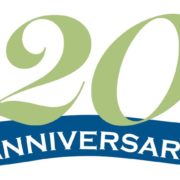Carol Schmidlin
Presents a Complimentary Live Webinar:
“Understanding Annuities“
Special Webinar: Given the recent turmoil in the stock and bond markets, many people are looking to protect some of their profits and look at alternative vehicles like annuities. Before doing so, it is important to have a thorough understanding of how these vehicles work.
Understanding Annuities
Annuities are good, annuities are bad. What is it? One thing for sure is that annuities can be complicated. There are tremendous advantages for some people to own an annuity, along with disadvantages for some. During this webinar we will discuss the four types of annuities, the pros and cons of each type, along with the safety concerns.
Join us for a timely webinar:
Wednesday, February 21, 2018
from 12:00 – 1:00 pm EST
To access the Live Webinar, click on the link below:
https://register.gotowebinar.com/register/3063044070332754177
If you experience problems registering, please email natalie@franklinplaning.com or call (856) 401-1101. For those of you who can’t participate on the computer and would like to call in, let us know and we will send you the slides so you can follow along! Or contact Natalie Meglino at natalie@franklinplanning.com and request to be registered.
If you experience problems registering, please email
natalie@franklinplanning.com or contact 856-401-1101
** For those of you who can’t participate on the computer and would like to call in, let us know and we will send you the slides so you can follow along! Or contact Natalie Meglino at natalie@franklinplanning.comand request to be registered.
Securities offered through GF Investment Services, LLC. Member FINRA/SIPC. Investment advisory services offered through Global Financial Private Capital, LLC.


